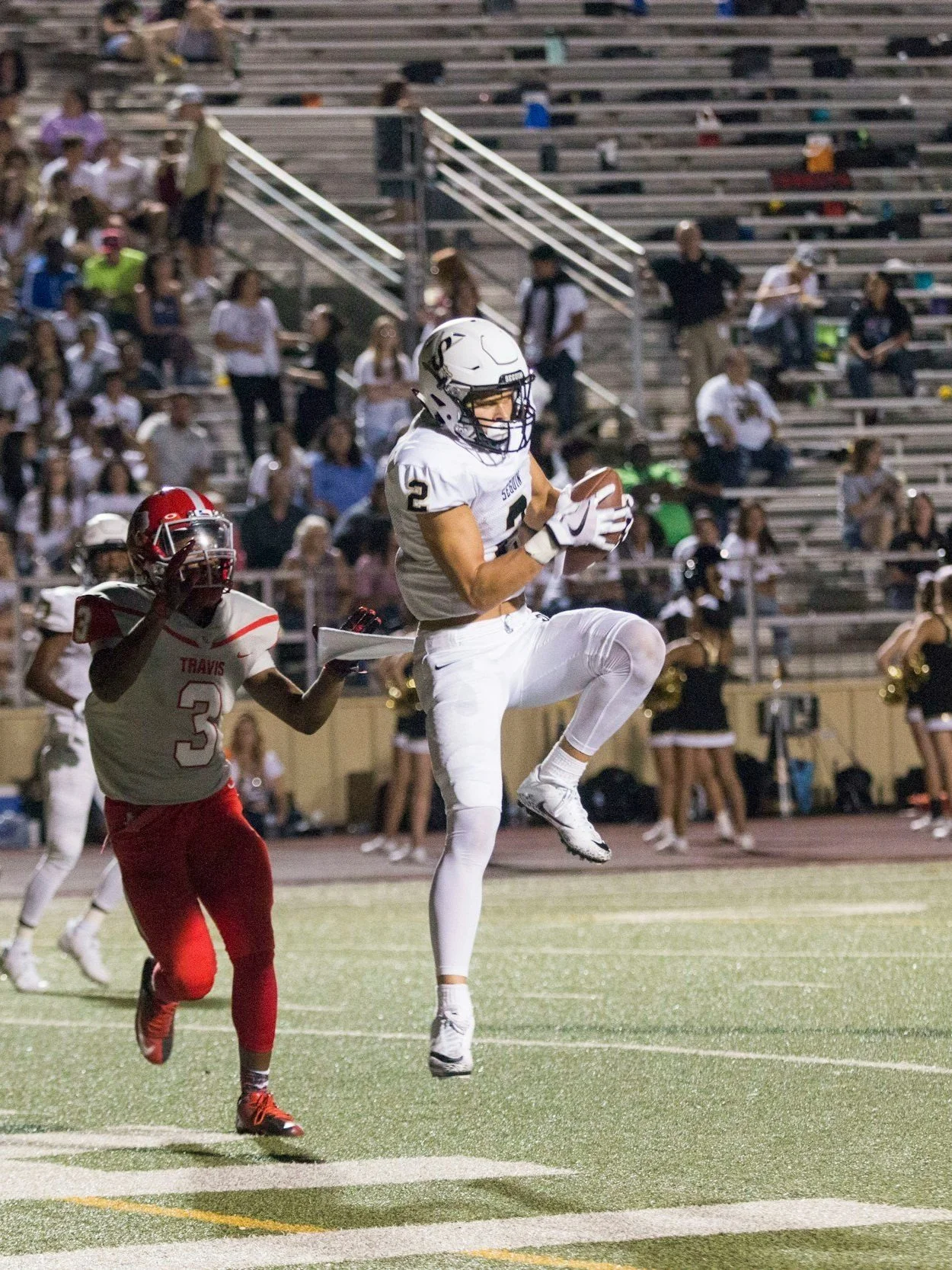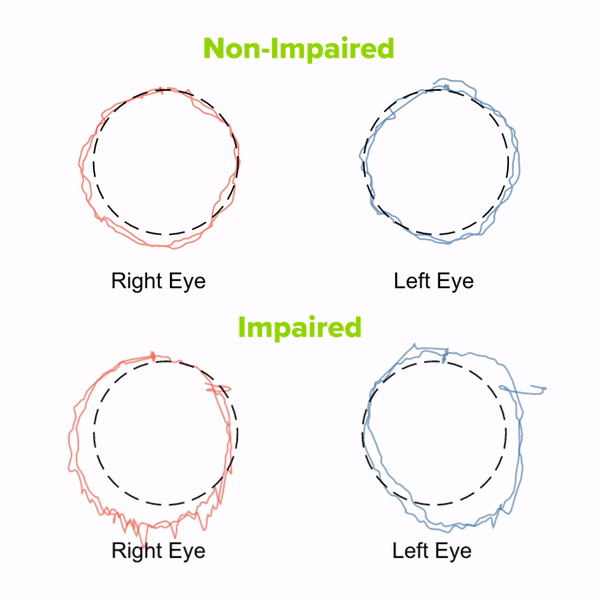How Athletes Can Recognize When Their Vestibular System Is Off: A Football Receiver Analogy
Imagine being a wide receiver in football, lining up for the snap. Your job is to sprint down the field, make a sharp cut, and catch the ball while dodging defenders. To do this efficiently, your vestibular system—the part of your inner ear that controls balance, coordination, and spatial awareness—needs to be functioning at its best. But when your vestibular system is off, it’s like trying to make those plays without being able to fully see the ball or know where your body is in space.
In this blog, we'll explain how athletes, particularly football players, can recognize signs of vestibular dysfunction using the analogy of a receiver, and how Rebalance Physical Therapy can help you get back in the game.
Signs Your Vestibular System is Off: The Receiver Struggles
1. Dizziness or Vertigo After Quick Turns
A receiver makes sharp cuts to break free from defenders. When your vestibular system isn’t working properly, these quick directional changes can lead to dizziness or vertigo, making it hard to keep your eyes on the ball and maintain balance. If you feel a spinning sensation after sharp turns, it’s a sign that your vestibular system is struggling to keep up.
2. Delayed Reactions and Poor Hand-Eye Coordination
Catching a football requires split-second reaction time and precise hand-eye coordination. If you notice that your reaction times are off or you struggle to track the ball while running routes, your vestibular system could be the culprit. Your vestibulo-ocular reflex (VOR), which keeps your eyes steady during head movements, may not be functioning well, leading to missed catches and slow reaction times.
3. Balance Problems During Cuts and Jumps
A receiver needs impeccable balance to maintain control during quick moves, jumps, and pivots. If you feel unsteady while making cuts or notice you’re losing your footing more often, it could indicate that your vestibular system isn’t sending the right signals to your brain and muscles, making it harder to stay on your feet.
4. Nausea or Motion Sensitivity During Drills
Running routes, especially during complex plays, can become overwhelming if your vestibular system is compromised. You may feel nausea or motion sickness during drills that involve quick movements, making it harder to push through training. If you're feeling overly sensitive to motion, your vestibular system may be struggling to process the rapid changes in your body’s position.
5. Feeling Disoriented or “Foggy” After Plays
A receiver needs to think on their feet, reading the defense and adjusting routes as needed. If you feel mentally “foggy” or disoriented after a play, it could mean your vestibular system isn’t properly coordinating your spatial awareness. This lack of clarity can lead to poor decisions and slower reaction times on the field.
How Rebalance Physical Therapy Can Help Athletes Like Receivers
At Rebalance Physical Therapy, we offer specialized vestibular rehabilitation programs designed to help athletes like wide receivers regain their balance, coordination, and hand-eye coordination. Here’s how we can help:
1. Gaze Stabilization and Hand-Eye Coordination Training
In football, your eyes need to track the ball while your body moves quickly. We use gaze stabilization exercises to improve your vestibulo-ocular reflex (VOR), helping you maintain sharp visual focus during rapid movements, just like a receiver tracking a deep pass.
We are also able to tell you how well your eyes are able to follow a moving target (the ball) to catch a game-winning pass, how well your eyes can accurately jump between 2 targets (oncoming defenders), and how well your eyes can fixate on a target (the ball) with our specialized RightEye assessment. This 5 minute assessment gives you numerical data on how well your eyes are performing during these crucial tasks that all athletes need to master for peak performance.
2. Balance and Proprioception Training
A receiver relies heavily on balance to make precise cuts and leaps. Our balance training exercises are designed to retrain your vestibular system, helping you regain body awareness and stability while running routes or making sharp turns on the field.
3. Postural Control and Core Strengthening
Good posture and core strength are crucial for maintaining control and avoiding injury during physical contact or quick movements. Our vestibular therapy includes exercises that enhance your postural control, improving your ability to hold your ground during intense plays.
4. Customized Vestibular Rehabilitation Programs
Every athlete is unique. We use cutting-edge technology, including RightEye software, to assess your vestibular function and create a tailored treatment plan to address your specific symptoms, ensuring you’re able to perform at your best on the field.
5. Group Training for Sports Teams with Quantitative Data
Rebalance Physical Therapy offers group training for entire teams, including wide receivers. Using specialized equipment, we provide detailed, quantitative data on each athlete’s hand-eye coordination and balance. Based on this data, we develop a one-hour training session for the whole team to improve their performance and ensure they’re working together seamlessly on the field.
Conclusion
Just like a receiver depends on precise balance and quick reflexes to excel in football, athletes in all sports rely on their vestibular system to perform at their peak. If you’re noticing any of these signs, it may be time to assess your vestibular function. At Rebalance Physical Therapy, we’re here to help you regain control, improve your performance, and get you back to dominating the field. Contact us today to schedule an evaluation and get a competitive edge by enhancing your vestibular system!


